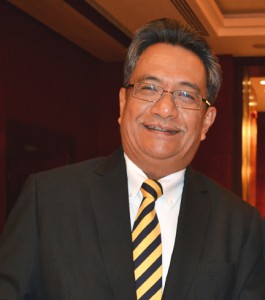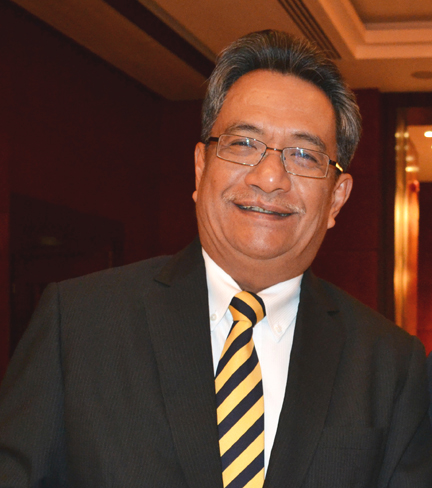
PHILIPPINE shippers and port operators have outlined problems that hamper port efficiency especially in Manila, even as they lauded the Aquino government’s initiatives to address industry concerns.
In a presentation at the recent Philippines Ports Development Summit 2013, Pac-Atlantic Holdings Co. Inc. chairman Ramon de Leon enumerated a number of factors – echoed by port operators – that lead to congestion in the port area.
These are the proliferation of obstructions, a lack of truck holding areas and cargo rail system, lack of road linkages between ports and economic zones, the truck ban and anti-overloading law, as well as overstaying containers.
De Leon said the modified truck ban, which freezes truck movement nine hours each day, can be good or bad. To a private motorist, the ban is good as there are fewer vehicles to share the roads with, but from a truck driver or shipper’s point of view, the ban is not favorable, he said.
“Goods ideally should flow freely any time of the day,” he said.
Also as a result of the truck ban in addition to lack of truck holding areas, trucks park just about anywhere while waiting for the lifting of the ban, serving to further clog the roads, de Leon said.
He clarified that Pac-Atlantic is not against the anti-overloading law but suggested that authorities “first thoroughly consider all implications and balance the consequences of the law.”
Meanwhile, to rid the ports of overstaying containers, he said higher storage fees should be considered, a view shared by Christian Gonzalez, vice president of International Container Terminal Services Inc. and general manager of the Manila International Container Terminal, in an earlier interview with PortCalls.
Shippers bear higher costs
For his part, Sean Perez, Asian Terminals Inc. vice president for commercial and marketing, said the truck ban and the anti-overloading drive are restrictive to industry.
The measures, he explained, limit trucks to one trip instead of two a day, jacking up cost for truckers, exporters and importers.
Not helping the situation any is the “mismatch” between operations of ports and that of the Bureau of Customs. He pointed out that ports operate 24/7 while the customs bureau works only eight hours a day, five days a week, causing BOC to perpetually play catchup with shipment clearance.
Perez’s insight on the truck ban was echoed by NYK Line general manager Daniel Ventanilla, who said the measure “funnels traffic time to limited slots”, in turn building volume at certain times of the day.
Even Davao it seems is not immune from the traffic congestion. Bonifacio Licayan, vice president and assistant general manager of Davao International Container Terminal (DICT), said traffic leading to the port has started to build up.
He said the Department of Public Works and Highways has a mothballed plan to build flyovers in the Davao region and that one is supposedly allocated to Panabo City, where DICT is.
Informal settlers
Issues raised by other summit participants include informal settlers along roads leading to the ports; illegal vendors, tricycles and pedicabs crowding major truck routes; and uncoordinated road diggings and constructions that further constrict road space.
Richard Barclay, chief executive of the Manila North Harbour Port Inc., said the company had gone as far as relocating karaoke bars and vendors outside the port.
He noted the problem with neighboring informal settler communities affects the Manila North Harbor’s accreditation as compliant with the International Ship and Port Facility Security Code, a comprehensive set of measures to enhance security of ships and port facilities.
Posing hazard to navigation, meanwhile, are two vessels stuck in the North Harbor for the last 12 to 13 months, Barclay said.
The vessels were seized by the Bureau of Customs and are lying idle at the port, awaiting government decision.





